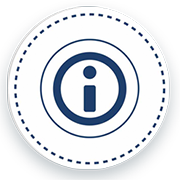Study @ Unisa
Student values & academic integrity

Unisa students commit to these values
These values define our conduct and our focus in providing an environment, a culture and a service that will shape and allow us to fully live and exemplify our values:
- Integrity
- Respect
- Discipline
- Honesty
- Commitment
- Humanity
Unisa has a zero tolerance for any form of dishonesty or cheating activity related to assessments and exams
We wish to remind all students that Unisa has a zero tolerance for any form of assessment and examination dishonesty or cheating.
Any student who is found to have participated in any fraudulent or dishonest activity related to assessments or exams (eg possession of unauthorised notes or exam papers, external parties assisting with assessments) will be referred to the Student Disciplinary Unit for investigation and disciplinary action. If found guilty, they will have their modules cancelled and their marks withdrawn. They will also face up to a maximum of five years suspension from the university and from all universities in South Africa. Click here for the Unisa rules for students and the Student Disciplinary Code.
The university appeals to students with any information on dishonest or fraudulent activity related to Unisa assessments or exams to report it to the Fraud/Corruption Hotline on telephone number 0800 005 311 or send an e-mail to hotline@kpmg.co.za
Complete the compulsory academic course - upholding academic integrity is our collective responsibility
 Academic integrity represents our commitment to and demonstration of honest and ethical behaviour in academic settings. It encompasses ethical principles, such as honesty, trust, fairness, respect, responsibility and courage. It is important for, ensuring the value of Unisa's qualifications, and fostering a culture of trust and respect within the academic community.
Academic integrity represents our commitment to and demonstration of honest and ethical behaviour in academic settings. It encompasses ethical principles, such as honesty, trust, fairness, respect, responsibility and courage. It is important for, ensuring the value of Unisa's qualifications, and fostering a culture of trust and respect within the academic community.
The University Senate has resolved to introduce a compulsory Academic Integrity Course to all students registered for undergraduate and postgraduate (NQF 5 to NQF 8) programmes, as part of orientation activities from the 2025 academic year.
The course is aimed to empower you to embody the values of honesty, respect, fairness and accountability in your academic and professional journeys. It also provides you with foundational knowledge and practical skills necessary to navigate your studies ethically and responsibly. You will learn practical approaches to academic writing, strategies to avoid plagiarism, guidelines for ethical AI use, and the importance of ethical decision-making in assessments and research. Click here for more information.
Last modified: Wed Feb 05 12:05:33 SAST 2025